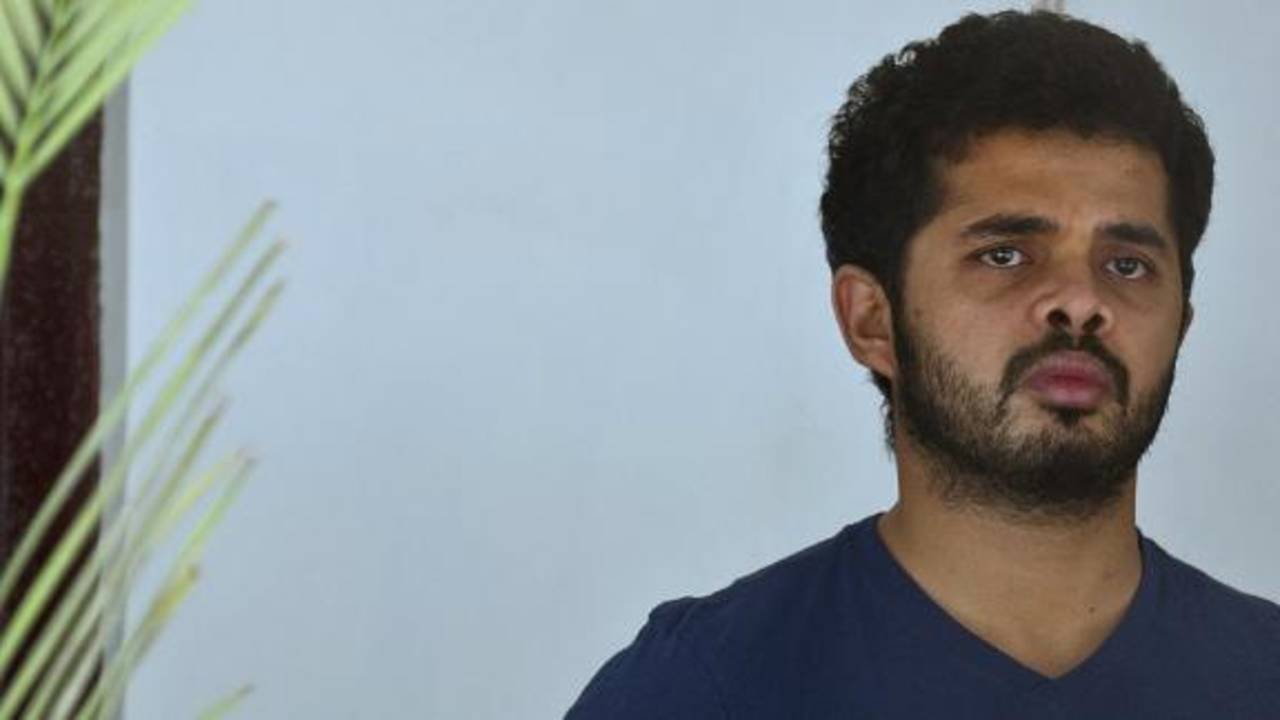Sreesanth's attempt to seek court intervention to lift the life ban imposed on him by the BCCI, for his alleged involvement in the 2013 spot-fixing scandal, has failed. A division bench of the Kerala High Court on Tuesday ruled that the BCCI ban cannot be overturned or reduced, thereby negating a judgement
issued by the same court in August, which had asked the board to lift the ban.
In a series of tweets after the judgement was made public, Sreesanth called Tuesday's verdict "the worst decision ever", and said he would continue to challenge the ban. Sreesanth and two other Rajasthan Royals bowlers - Ankeet Chavan and Ajit Chandila - were given life bans for their alleged involvement in the 2013 corruption and spot-fixing scandal in the IPL.
In August, Justice A Muhamed Mustaque of the Kerala High Court, had accepted Sreesanth's writ petition, filed in February, and told the told the BCCI it had no "incriminating evidence" and hence the ban should be "quashed".
In his petition, Sreesanth told the court that in 2015, a trial court had
dropped the criminal charges filed against him by the Delhi Police and hence the BCCI, too, should lift the ban. Sreesanth was among 42 individuals chargesheeted by the Delhi Police under the Maharashtra Control of Organised Crime Act (MCOCA).
Last month,
the BCCI challenged Justice Mustaque's order, saying the criminal proceedings established by the Delhi Police had no bearing on its own investigation, which had been carried out by Ravi Sawani who was chief of the board's anti-corruption unit at the time. Sawani had prepared two reports - preliminary and supplementary - having questioned Sreesanth in person and having taken a written undertaking from the player.
In its petition, the BCCI also asked whether a writ court could "sit in appeal" and "alter the quantum of penalty imposed" against the findings of the board's disciplinary committee. A writ is an application filed in the court asking it to enforce some right against an authority or against an order against which there is no statutory remedy.
The BCCI said that its decision was in "accordance" with the principles of natural justice and asked the court to decide whether Justice Mustaque's order was "contrary to law and to principles of justice, equity and good conscience and ought to be set aside?"
On Tuesday, in an oral order, a two-judge division bench, comprising Justices Navaniti Prasad Singh and Justice Raja Vijayaraghavan, ruled that a writ court could only scrutinise if the BCCI's investigation process was fair, but could not challenge the merits of the punishment. The writ court, the division bench pointed out, could not overstep its brief and become an "appellate" power over BCCI; doing so would be "exceeding the limits of judicial review".
The division bench also rejected Sreesanth's argument that he had been denied natural justice. It said Sreesanth had actually violated the BCCI's anti-corruption code, having failed to inform the anti-corruption unit about the illegal activities despite receiving education from the ACU. The division bench also agreed with the BCCI that the decision of the Delhi trial court could not be equated to the life ban as desired by Sreesanth.
Sreesanth expressed strong resentment towards the court order immediately after the judgement was made public and questioned why he was being singled out when the
BCCI had allowed Chennai Super Kings and Rajasthan Royals - the two IPL franchises suspended following the 2013 scandal - to return to the fold. "Special rule for me? what about real culprits? What about chennai super kings ? And what about Rajasthan?" he tweeted.
